- Learning time
- 10 minutes
- First play time
- 45 minutes
Lost Cities
Designed by: Reiner Knizia
The theme of Lost Cities is that the two players are adventurers setting out on various expeditions. The expeditions are, in reality, five coloured suits of cards numbered 2 to 10, plus three handshake cards in each suit.
Players have a hand of eight cards, the rest forming a draw pile to the side – when the draw pile runs out, the game is over, and points are scored for the cards each player has played in front of them (cards in hand at the end are worthless).
Turns are simple – you play a card, then draw a card. You may play a card to the central discard board (where there is a pile for each suit), or you may play it in front of you, to your tableau. You then draw a card – either from the draw pile, or from the top of one of the discard piles, and play passes to your opponent.
The first card of a given suit you play to your tableau commits you to the expedition of that colour – you’re not required to start any expeditions, but if you don’t you won’t get any points. The cards played must be in ascending order, so once you’ve begun you can only play cards of a higher value to that suit. Thus an expedition comprising the 2,3,4,7 and 9 would be worth 25 points, whereas one with the cards 7, 9 and 10 would be worth 26 points. However, there are costs associated with launching an expedition, and the moment you begin one your score in that colour stands at -20. So in the above examples, the player would score 5 and 6 points respectively. A score of less than 20 in an expedition you’ve started will net you minus points.
The three handshake cards in each suit represent investors, and they will dramatically increase the risk/reward for each expedition by acting as multipliers: doubling, tripling or quadrupling your final score, depending on how many are played. However, handshakes also multiply a negative score – and they must be played before any numerical cards, so committing to several handshakes raises the stakes enormously.
If you manage to play 8 or more cards in a suit you will also score a 20 point bonus (added after the multipliers).
The management of your hand, and timing of play are the keys to success in Lost Cities. If you begin expeditions too early, you can be sure your opponent will hold on to any cards that you might need – but holding off forces you to discard cards you might later need. And since the draw pile is a timer for the game, each player can affect the pace by drawing from the discards to slow down the game end.
Joe says
Lost Cities is a quite brilliant card game for two. It will take a few games to begin to get a handle on the strategies, and you'll see that each game has a particular pace to it. At the beginning, players are cagey, trying to assess which expeditions might be worth starting, and hoping to pick up cards that help with these. As the draw pile diminishes, there's a tipping point, which must be accurately gauged, where it's time to start playing cards before it's too late (forget that third blue handshake, after all it might be the bottom card of the deck). And the game end can creep up on you before you've had time to play all the cards you want to, so you find yourself drawing useless cards from the discards to slow the game end down, while your opponent attempts to rush it to its conclusion. Lost Cities has spawned innumerable iterations - but it's hard to beat the original; and harder still to find a more accessible two player card game with so much strategy. A masterpiece!
The guru's verdict
-
Take That!
Take That!
It's not an openly combative game, but players will try and manipulate each other and make sure they don't gift their opponent helpful cards.
-
Fidget Factor!
Fidget Factor!
Almost none.
-
Brain Burn!
Brain Burn!
Although you don't want to play with no thought at all, Lost Cities players shouldn't take forever to make a decision.
-
Again Again!
Again Again!
Very simple rules and randomness of cards make Lost Cities very revisitable.

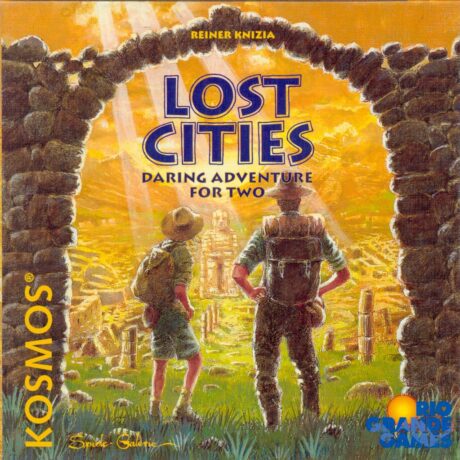

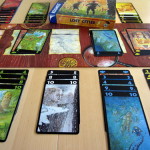
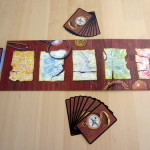
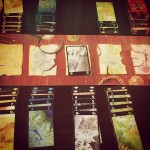
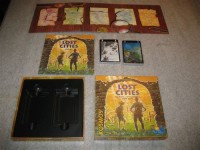
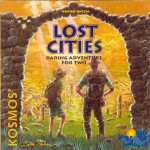


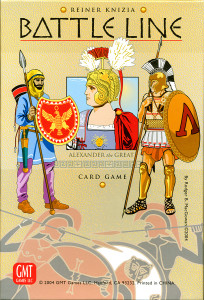
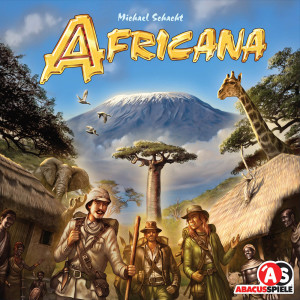
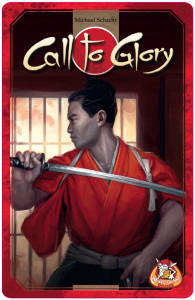
Sam says
It's a clever game of collecting that can be almost addictive for two.